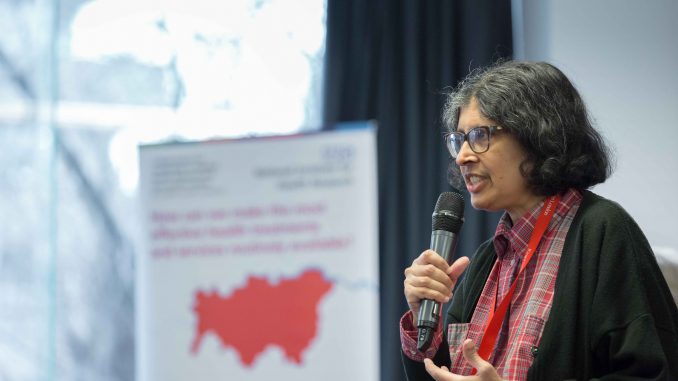
The start of the Applied Research Collaboration in South London (along with ARCs elsewhere in England) offers opportunities to attract fresh interest and widen involvement. The beginning of a decade adds to a sense of the new, though connected with what has gone before.
There is much that is positive to build on from the previous Collaboration for Leadership in Applied Health Research and Care (CLAHRC) and current research teams’ achievements, including in patient and public involvement (PPI). Yet entering the 2020s, the seriousness of challenges facing health and social care locally, nationally and globally is becoming clearer. Though greater knowledge has brought many benefits, a daunting range of problems get in the way of wellbeing for people with long-term conditions or at the beginning or end of life.
Climate change is, literally, a burning issue. Awareness has grown of the various ways in which pollution damages child and adult health in London and other cities. Disadvantage and insecurity continue to take a toll, with gaps in life expectancy of up to about eight years even in the same south London borough. Divisions are deepening in certain ways and anti-minority hostility further undermines mental and physical health. So do trauma and violence, NHS and social care pressures, cuts in other public services and shortage of affordable housing. Local people are often dealing not only with multiple health conditions or impairments but also complicating factors. As service users, carers and communities grapple with often grim situations, the question arises of how much difference PPI can make.
Of course, even small research-based improvements can add to quality of life. And as far as possible, everyone should have the chance, if they wish, to get involved in research which may, in time, influence the care they (or others with similar needs) receive. In addition, those with experience of PPI – researchers and support staff, patient and public contributors – can give many examples of how it has enriched research.
Involvement by diverse service users can help ground studies in people’s experiences and contexts, reducing the risk of just focusing on diagnoses or lists of needs. It can also be a reminder of the ways in which individuals and groups respond, outside medical or social services settings. Carers and communities also have important insights.
The way research is organised, including funding patterns and pressure to publish in the ‘right’ journals, does not always encourage long-term work which makes connections. Strengthening PPI can potentially promote a more joined-up approach across themes, recognising what helps and hinders health in the physical and social environment. Together patients, public, researchers and service providers have more chance of tackling the challenges ahead.

Leave a Reply